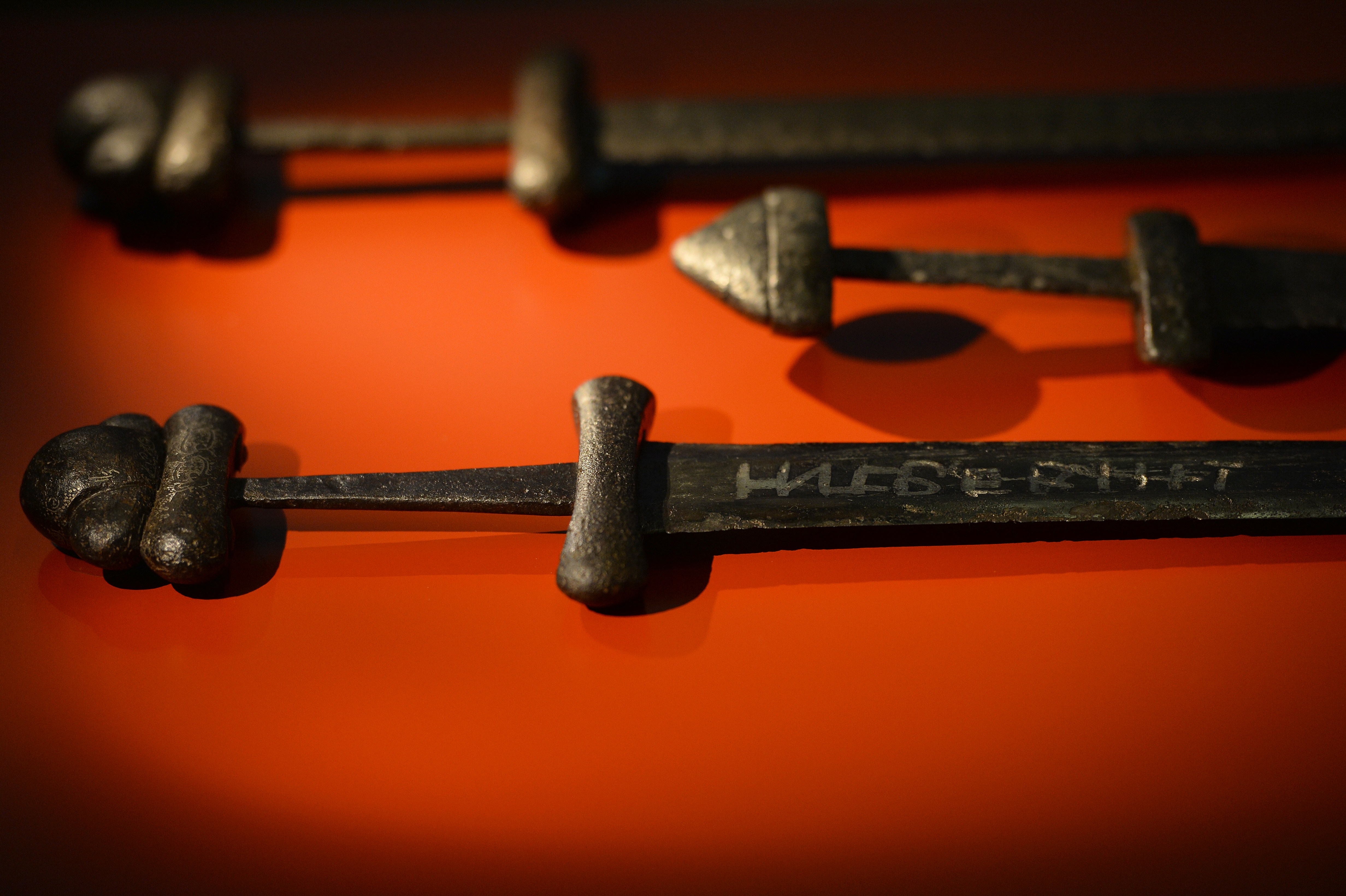Scientists in Germany have found evidence suggesting that famed medieval Ulfberht swords used by Vikings and Franks were manufactured in Germany, according to an interview with chemist and researcher Dr. Robert Lehmann published by Spektrum.de. His research has also suggested the blades were designed to “sing” when in motion.
Lehmann, a chemist from the Helmholtz Institute in Ulm, analyzed an Ulfberht sword found buried in Hameln, Germany, in 2012. During examinations, the blade rang with an almost musical tone.
“When we examined the Ulfberht sword from Hameln and pressed the blade, the metal started to vibrate. You might have thought the sword sings,” reported Lehmann, describing the noise.
“It must have been an impressive effect to pull the blade out of its sheath.”
Ulfberht swords have merited renown similar to the Japanese katana due to legendary strength, fluidity and sharpness in battle. Furthermore, research has proven that manufacturers of this sword type were centuries ahead of their time—in 2009, researcher Alan Williams of the University of Liverpool established that Ulfberht swords were manufactured with a high quality of steel using technology surpassing what existed in medieval Europe.
The swords derive their name from an inscription on the blade, +VLFBERHT+. Researchers have debated whether the imprint was the name of a manufacturer or perhaps some form of good luck charm. The blade inscription varies; sometimes letters are missing or appear backwards.
There is also some dispute as to whether the original manufacturers of Ulfberht swords were Frankish or Viking. Regardless, Ulfberht swords were produced by various manufacturers over time. Researchers in Germany estimate that both Franks and Vikings attempted to manufacture this type of sword using materials available to them.
Past research has suggested Ulfberht manufacturers used technology from Central Asia to create their swords. However, Lehmann’s detailed analysis of the chemical composition of the steel of the Hameln sword suggests Ulfberht swords were manufactured by smiths in central Germany using metal from the Siegerland region.
Archaeologists claim it was possible for the swords to have been manufactured at the German monasteries of Fulda or Lorsch, which are documented for manufacturing weapons and receiving tributes in the form of iron from surrounding lands.
Many Ulfberht swords recovered by archaeologists are connected to gravesites. Swords had great cultural and religious significance to Viking warriors. The ancient Norse concept of heaven—“Valhalla”—was a victory hall reserved for men who gave their lives heroically in battle. Therefore most Viking warriors were buried surrounded by an array of their weapons—often including their Ulfberht swords. In contrast, various Ulfberht swords in Central Europe have also been recovered from rivers. MH





